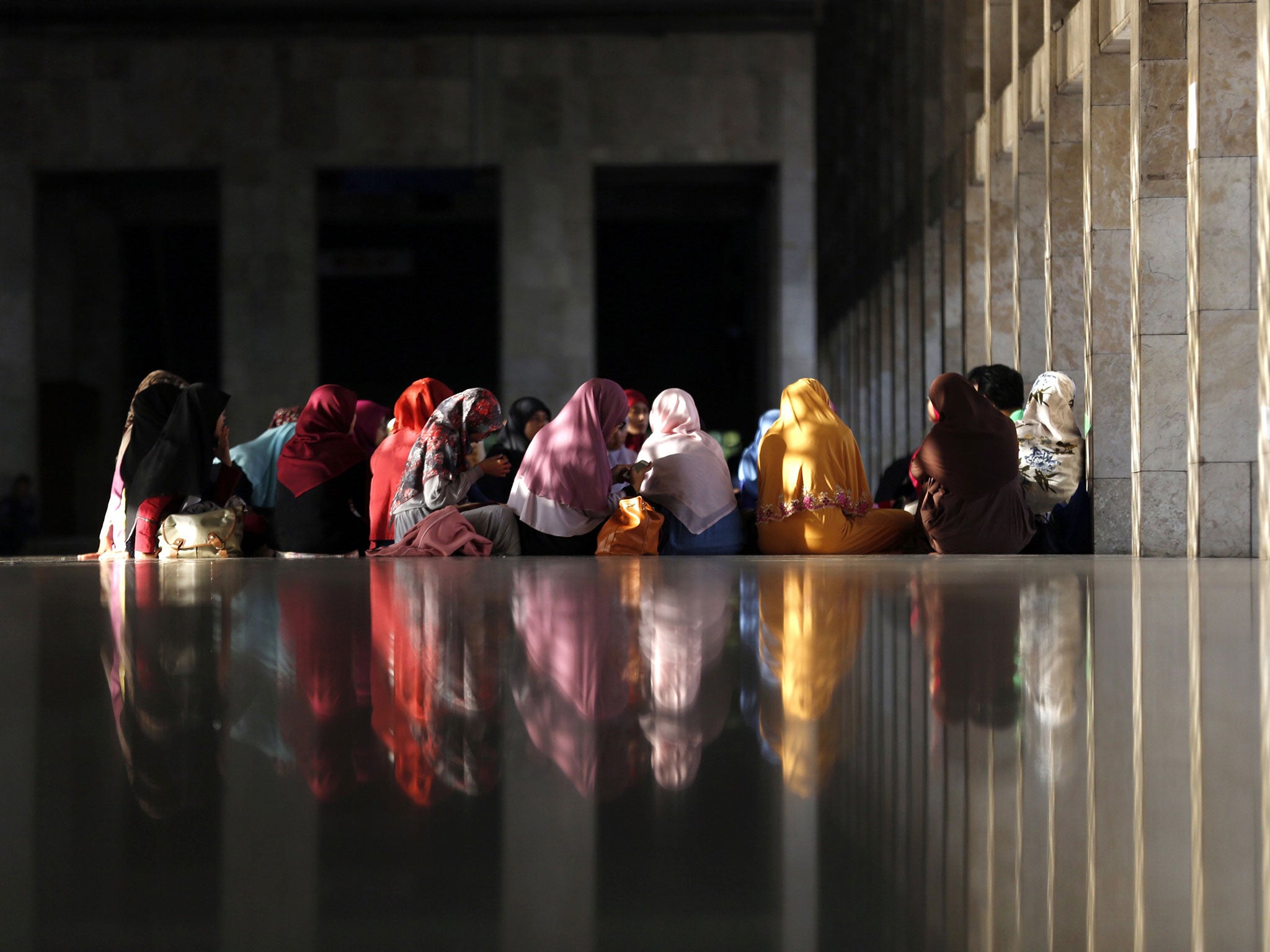My mother was forced to hide away in the 1970s. Now another generation of Muslim women is being attacked
Scapegoating communities for acts of terrorism leads to social isolation and a lack of belonging – which is exactly what extremist recruiters want

Your support helps us to tell the story
From reproductive rights to climate change to Big Tech, The Independent is on the ground when the story is developing. Whether it's investigating the financials of Elon Musk's pro-Trump PAC or producing our latest documentary, 'The A Word', which shines a light on the American women fighting for reproductive rights, we know how important it is to parse out the facts from the messaging.
At such a critical moment in US history, we need reporters on the ground. Your donation allows us to keep sending journalists to speak to both sides of the story.
The Independent is trusted by Americans across the entire political spectrum. And unlike many other quality news outlets, we choose not to lock Americans out of our reporting and analysis with paywalls. We believe quality journalism should be available to everyone, paid for by those who can afford it.
Your support makes all the difference.Late Friday afternoon, I was in Bradford city centre. A group of 40 women, all from different faiths, young and old, had braved the gusty cold wind and rain to sing songs of peace. The atmosphere was uplifting and jovial. Later that evening, as news broke of the horror unfolding in Paris, I remembered the vigil and couldn’t help but note the contrast between the two. On the one hand you had a group of women who had united to send a clear message that anyone who intended to divide the town and its communities was not welcome. On the other, a handful of individuals who disrupted peace and created terror, killed and injured hundreds and caused ripples of panic across Europe.
What drives an individual to commit such a horrific crime against humanity? For what purpose? These are the questions we need to answer if we want to end this war on terror – a war that most of us know very little of, yet also a war that affects every single one of us, regardless of where you live.
On Sunday, two days after the attacks, I met with a group of black and Asian women who shared their experiences of religious and racial hatred. Many described how they had been spat on, sworn at and harassed in their own neighbourhoods. After the Charlie Hebdo attacks in January, a young British Muslim had shared her struggle with me. “I feel like I am fighting two battles,” she said. “The first is against Isis and the terrorists, this involves me condemning their actions and stating that they do not represent me, and the second battle is in my home town – and that is the hardest battle, the battle of winning people’s hearts and their trust, having to prove to them I am not like the terrorists.”
Is it naive to suggest that this is unjust? Why should a woman who has no interest in politics have to deal with the consequences of it? Muslim women are vulnerable to such racial attacks because, if they wear the hijab, they are a visible target. The veil is universally recognised as a symbol of Islam, thus many direct their venom and vengeance at it.
My mother experienced the wrath of the far right at its height in the 1970s, when the National Front terrorised neighbourhoods in the North. “Why don’t they [Muslim women] just stay inside?” she asked. It was a comment that was made off the cuff, she had said it light-heartedly, but it stayed with me for the remainder of that day and even now I can’t shake it, for there is truth within it. My mother’s generation of women dealt with the abuse they encountered by hiding themselves or silently suffering. We risk returning to that situation.
Terrorists do not discriminate; whether you are Muslim or not, they will kill. Our response to that must not be to hide away. We should not discriminate when we seek to strengthen; we should defend our communities from those who wish to demolish the principles we cherish. Scapegoating communities or individuals only makes the problem worse. It leads to disengagement, isolation and a lack of belonging – exactly the factors that terrorists prey on in their recruitment.
Join our commenting forum
Join thought-provoking conversations, follow other Independent readers and see their replies
Comments